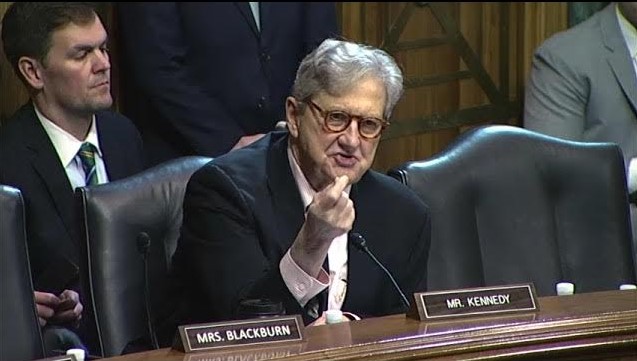John Kennedy was speaking out about the federal judges and their overreach. Chuck Grassley introduced a bill targeting federal judges who think they can make nationwide injunctions. The statement on Grassley’s Senate.gov page says
This month’s NBC poll finds more registered voters believe our country is on the right track than at any other point in the past two decades. But amid President Trump’s flurry of executive action, federal district judges have increasingly—and inappropriately—inserted themselves into the national policy debate. They have repeatedly chosen not only to decide the cases before them, but also to issue orders derailing executive policy nationwide.

These nationwide injunctions have become a favorite tool for those seeking to obstruct Mr. Trump’s agenda. More than two-thirds of all universal injunctions issued over the past 25 years were levied against the first Trump administration. In the past two months alone, judges have issued at least 15 universal injunctions against the administration—surpassing the 14 President Biden faced throughout his four-year term.
Scholars can find no clear record of a universal injunction issued before 1963. The practice has become common only in the past few decades. It can have serious consequences for the American taxpayer. A Biden-appointed judge in the District of Columbia issued a temporary restraining order (TRO) against Mr. Trump’s pause of some U.S. Agency for International Development funding. TROs are supposed to maintain the status quo while review is pending. Had the Supreme Court not directed the judge to clarify this order, it would have forced $2 billion in taxpayer money out the door—most of it to entities that didn’t even sue.
These decisions also place undue stress on the judicial system by inserting political calculation into the selection of the judges and the resolution of disputes. Political and fiscal implications aside, district judges’ abuse of temporary restraining orders and nationwide injunctions is unconstitutional. Article III of the Constitution tasks the judicial branch with resolving “cases” and “controversies,” not making policy.